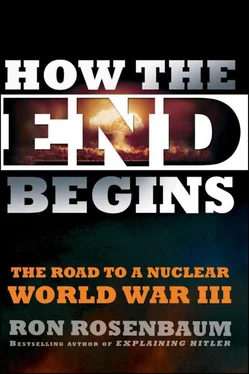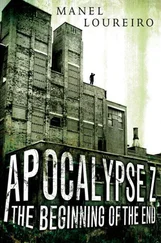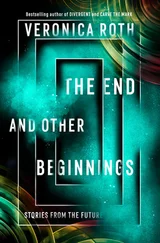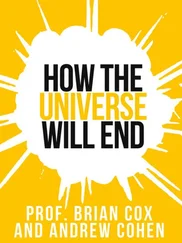Still there are those who resist taking into account the secondness of a second Holocaust as a strategic—triggering—factor or admit the prospect into their worldview at all.
I didn’t become aware of the term “second Holocaust,” or, in any case, it didn’t linger in my memory, until I reread Philip Roth’s 1993 novel Operation Shylock [217]in 2002, nearly ten years after it was published. Prompted by the events of that year—not just the wave of suicide bombers within Israel but growing awareness of external nuclear threats from Iran. I used the phrase “second Holocaust” in print and found myself under fire—mainly from American Jews—for having broken a taboo. It took me a while to understand the fearful reaction to the phrase. Perhaps it’s best to begin with Roth’s use of “second Holocaust” in Operation Shylock.
In Roth’s strange and brilliant book the words “second Holocaust” are spoken through several levels of disguise and impersonation and so one is never clear what Roth’s relation to the phrase is; he’s such a brilliant ventriloquist who sometimes disguises his own views in a colorfully alien voice. In this case, in a novel that calls itself a true story, the “real” Philip Roth, the American novelist, narrator learns (from a reporter) that someone calling himself “Philip Roth” has been giving lectures in Jerusalem on the philosophy of “Diasporism.” It is Roth imagining “Roth” as a prophet of tragic nuclear extermination, a second Holocaust.
The “diasporist” Roth argues that the real glory of the Jewish people has been in exile. However oppressed and persecuted the Jews had been, their civilization and culture flourished and produced great works, but while restricted to, constricted by, Israel, Jews produced little of comparable importance. So the Jewish state was a mistake because Jews no longer engaged in the same kind of stimulating and provoking dialectic with the rest of the world the exiles had, and because Israel had with the help of the world turned itself into a kind of concentration camp that made it all the more vulnerable to… a second Holocaust. He used the phrase.
One learns after reading Roth for years—or one thinks one learns—to distinguish when he’s impersonating and when he’s—for want of a better word—personating—putting his own thoughts into others’ words. I couldn’t be sure which was happening in the key Operation Shylock paragraph, which led to a heated controversy when I quoted it in a column in 2002. [218]
“The meanings of the Holocaust” [says the “diasporist” who calls himself “Philip Roth”] are for us to determine, but one thing is sure—its meaning will be no less tragic than it is now if there is a second Holocaust and the offspring of the European Jews who evacuated Europe for a seemingly safer haven should meet collective annihilation in the Middle East…. A second Holocaust could happen here all too easily, and if the conflict between Arab and Jew escalates much longer, it will—it must…. The destruction of Israel in a nuclear exchange is a possibility much less farfetched today than was the Holocaust itself fifty years ago.” [219]
“It will—it must.” That’s strong even in the words of an unreliable narrator, an impersonator. Too strong for some.
It seemed clear to me that Roth was using the “diasporist” to break the taboo against uttering the phrase “second Holocaust,” but by embedding it in a novel’s multiple layers of irony it failed to provoke much of a reaction at the time. When it was proposed as a terrifying but real nonfiction possibility, the reaction suggested that something taboolike was at work in the superstitious fear of the phrase, as if uttering it might somehow bring it closer. I came to think of this phenomenon as second holocaust denial.
There were two main varieties of second Holocaust denial: geographical displacement and Holocaust inconsequentialism. Geographical displacement is the lesser of the two although the more revealing of the fear the phrase inspired. Thus on the talk show Charlie Rose [220]one critic indignantly told me it was “nonsense” to say there was likely to be a second Holocaust in Europe, a nonsensical response since I had been writing about the possibility of a second Holocaust in Israel. The geographic displacement seemed more an evasion than a mistake. Let’s talk about someplace it’s not likely to happen.
I wouldn’t have given it a second thought (after correcting him) if it hadn’t come up again. This time it came from a columnist for the New York Times who, in an even more far-fetched geographical displacement, insisted that I had suggested there would be a second Holocaust in America! [221]The two instances suggested that two intelligent people, both Jews, could not handle a discussion about the likeliest geographical site—the true picture was too distressing and tragic to deal with.
But the geographic displacement variety of second Holocaust denial was far less significant than what I’ve come to call Holocaust inconsequentialism—the denial of any historical lessons to be learned from the horror—which surfaced in the dispute between the well-known American novelist and essayist Cynthia Ozick and the prominent Anglo-Dutch intellectual Ian Buruma over the Israeli attack on the Iraqi nuclear reactor at Osirak in 1981. Menachem Begin’s frank explanation that Hitler’s Holocaust was a key factor in his decision did not sit well with some who were uncomfortable with the Holocaust having historical consequences. Cynthia Ozick takes up the story, telling us: [222]
“In a [2003] New York Times Magazine piece called ‘How to Talk About Israel,’ [223]Ian Buruma, alluding to Israel’s demolishment of Iraq’s nuclear installation, contends that it might have been justified in ‘many legitimate ways… but [Buruma] derides Menachem Begin’s appeal to the memory of the one and a half million Jewish children who were annihilated’ as illegitimate, even ‘shameful.’”
Yes, that’s where the shame inheres—in speaking of it and in drawing lessons from it, not in perpetrating it. Or so one might imagine reading Buruma’s outrage.
To Buruma’s charge that a Holocaust reference was “shameful” Ozick replies, in an Afterword to an anthology on the question of contemporary anti-Semitism I compiled: “Is the imagination’s capacity to connect Hitler’s Holocaust to a potential second one as Begin did worthy of such scorn or is this how human beings ought to think and feel?”
Some writers have accused Jews of making too much of the Holocaust, even exploiting it to justify Israeli actions they disagree with by giving the Holocaust a sacralized ahistorical status. I’d argue that in fact all the Holocaust museums in the world don’t make a difference if the Holocaust is made ahistorical in the other extreme—deprived of real-world, contemporary consequences from “the imagination’s capacity to connect events.” It bears some relation to what the philosopher Berel Lang was thinking about when he spoke to me about Heidegger’s silence after the Holocaust. [224]The German philosopher and godfather of postmodernist theory continued to write for three decades after the Holocaust, but the former Nazi Party rector of Freiburg University who offered his ruminations on just about everything else on heaven and earth never found the time or the interest to reflect in print on his role as a Nazi Party member who did his part to make his lecture halls Judenrein and who defended Nazism for the “organic” mentality of its blood-and-soil ideology. (Indeed what exercised him most in his postwar work was mechanized agriculture—not the mechanized killing that he had enabled.) “The Holocaust happened,” as Berel Lang put it. “It just didn’t have any consequences for Heidegger.” Nor should it have for Begin, for Israel, for us, according to Buruma.
Читать дальше











